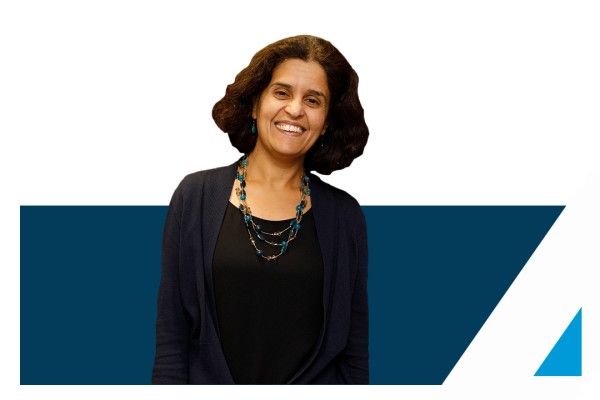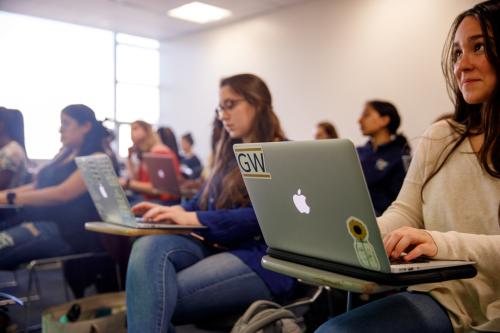Research Areas
Applied Communication Sciences and Disorders
In applied communication sciences, faculty and researchers study ways to improve communication and other life outcomes for neurotypical and neurodiverse populations. They use clinical science methods to evaluate and complete interventions. Recent research projects in this area include:
- Developing virtual reality environments for people who stutter
- Examining voice physiology as well as the psychosocial influence of voice and communication skills for transgender speakers
- Mapping out the neural pathways that are activated during lipreading and audiovisual speech perception
Faculty in This Area
Lynne Bernstein
Communication Neuroscience Lab
Shelley Brundage
Stuttering and Pedagogy
Cynthia Core
Bilingual Language Development Lab
Adrienne Hancock
Transgender Voice and Communication
Greg Wallace
Lab of Autism and Developmental Neuroscience
“When someone really finds their true voice, or their comfortable voice, that opens up their possibilities for how they express their identity.”
Adrienne Hancock
Associate Professor
Development, Cognition and Learning
Development, cognition and learning covers the acquisition of language and cognition across the lifespan, from children with developmental disorders to adults learning new skills. Faculty and researchers use behavioral and other tools appropriate for different ages. Recent research projects in this area include:
- Examining how preschoolers use imitation and memory to improve social learning
- Exploring children’s ability to perceive specific speech sounds and rhythms
- Investigating the voice quality characteristics of children with cochlear implants
Faculty in This Area
Lynne Bernstein
Communication Neuroscience Lab
Shelley Brundage
Stuttering and Pedagogy
Cynthia Core
Bilingual Language Development Lab
Neurological Disorders and Neuroscience
Neurological disorder and neuroscience experts investigate the brain basis of language and communication using a variety of tools, including functional magnetic resonance imaging (fMRI) and electroencephalogram (EEG) technology. Faculty and clinicians in the Speech and Hearing Center work with patients with neurological damage and disorders. Recent research projects in this area include:
- Examining the cognitive and neural underpinnings of eating-related behaviors, including “picky” eating and overeating
- Using MRI scans to study brain development in people with autism spectrum disorder
- Examining how the brain processes sentences and language
- Observing the interaction between language and cognitive control
- Searching for links between aphasia and functions such as behavior and movement
- Looking into the impacts of stroke and neurodegenerative disease on individuals and their families
Faculty in This Area
Lynne Berstein
Communication Neuroscience Lab
Mackenzie Fama
Brain and Language and Aphasia
“There’s a long history in neuroscience of thinking that language is separate from things like controlling our behavior or moving our bodies. We're challenging that idea."
Malathi Thothathiri
Associate Professor
Perception and Hearing Science
Perception and hearing science investigates how hearing loss affects speech perception. Faculty and researchers in this area use psychoacoustic and neural methods in their work with hearing-impaired children and aging populations. Recent research projects in this area include:
- Observing how children with cochlear implants produce and perceive certain speech and voice characteristics
- Developing methods for improving visual speech perception in noisy face-to-face social contexts
- Understanding the physiological underpinnings of speech production by people with hearing loss
Faculty in This Area
Lynne Bernstein
Communication Neuroscience Lab
Cognitive Science of Language
Cognitive science of language — also known as psycholinguistics — is the study of the interplay between language and the psychological/brain processes supporting it.
Faculty in This Area
Lynne Bernstein
Multi-Sensory Processing, Speech and Hearing
Shelley Brundage
Speech Fluency and Stuttering
Cynthia Core
Bilingual Language Development, Phonology
Mackenzie Fama
Aphasia, Brain and Language
Adrienne Hancock
Diversity and Variation in Communication
James Mahshie
Hearing, Children with Cochlear Implants
Francys Subiaul
Social Communication and Cognition
Malathi Thothathiri
Brain and Language, Aphasia
Greg Wallace
Autism and Developmental Disabilities, Brain and Behavior








